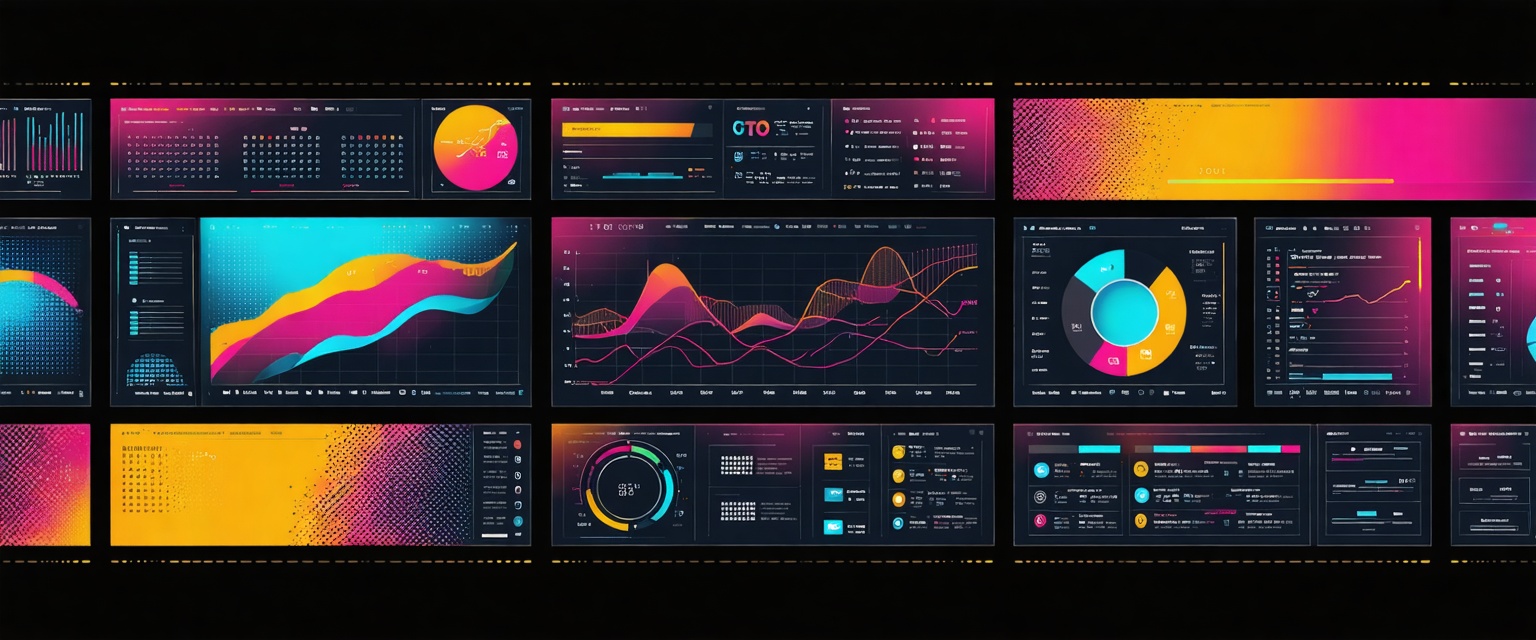Discover how AI agents automate audit documentation, cutting prep time by 70% and reducing compliance errors by 80% for financial controllers.
Financial controllers face mounting challenges as they compile audit documentation from scattered data sources. This fragmentation across ERPs, spreadsheets, and departmental systems creates compliance risks through human errors and version control issues. With AS 1215 requirements approaching in December 2025, manual documentation processes are becoming unsustainable.
AI agents like Datagrid offer a solution by automatically extracting, verifying, and documenting financial information from multiple systems, streamlining audit preparation while enhancing compliance.
What is Audit Documentation for Financial Controllers?
Audit documentation is the complete written record of procedures, evidence, and conclusions supporting your financial statements and internal controls. As a financial controller, you're responsible for maintaining this foundation that demonstrates compliance with accounting standards and regulations.
This documentation encompasses all evidence validating your financial reporting, transaction records, reconciliations, supporting schedules, and management statements. Standards like AS 1215 require documentation of significant risks, procedures addressing them, audit findings, and all audit committee communications.
This goes beyond simple record-keeping. You need written evidence of every procedure, all collected evidence, and your reasoning for critical decisions.
Verbal explanations aren't sufficient as regulators require documented justification for accounting treatments, especially when findings conflict or issues remain unresolved. Your documentation typically spans numerous sources and formats, from ERP reports to spreadsheet reconciliations and contracts.
This creates a complex information network that must be organized, cross-referenced, and accessible for internal and external reviews. The real challenge lies in keeping this documentation complete, accurate, current, and properly maintained across all business processes.
Why Financial Controllers Rely on Robust Audit Documentation
For Financial Controllers, audit documentation isn’t just about ticking compliance boxes. It’s a critical tool for safeguarding financial health, supporting operational control, and protecting the company’s legal and financial standing.
Supports Financial Reporting Accuracy
Your audit documentation directly affects the accuracy and completeness of financial reporting. Every procedure, finding, and conclusion must be documented precisely. Documentation gaps can escalate into regulatory penalties or audit failures that damage your organization's credibility.
Ensures Regulatory and Compliance Readiness
Regulations continue to evolve, requiring more thorough documentation and comprehensive audit trails for regulatory review. Well-organized evidence eliminates time-consuming searches and reconciliations during audits, helping you stay prepared for regulatory scrutiny.
Streamlines Audit Processes
Your audit evidence becomes more accessible and complete by focusing on ways to improve audit documentation workflows. This enables internal and external auditors to work more efficiently, reducing audit cycle times and costs. This efficiency becomes vital when facing tight deadlines and limited resources, allowing your team to focus on higher-value activities.
Improves Decision-Making Confidence
Documented audit evidence provides the factual foundation needed to support critical financial decisions. Complete documentation creates a trail that validates strategic choices and demonstrates due diligence to stakeholders, regulators, and board members.
Reduces Financial and Operational Risks
Strong documentation practices protect against multiple risks. Cybersecurity and data privacy concerns make secure, accessible documentation essential. Well-documented processes help detect operational risks and potential fraud early, allowing you to address issues before they affect financial stability.
AI agents connect these fragmented documentation processes, automatically gathering information from disparate systems while ensuring compliance with standards and reducing the manual burden on financial teams.
Common Pitfalls in Manual Audit Documentation for Controllers
Manual audit documentation creates major bottlenecks that can derail your effectiveness and compliance as a financial controller. These old-school approaches can't keep up with today's complex business environment and tougher oversight requirements.
Large Volumes of Financial Data Scattered Across Systems
Your financial information lives across ERPs, spreadsheets, databases, and departmental apps. This fragmentation makes data consolidation a nightmare, especially with multinational operations requiring reconciliation across divisions and countries. The data explosion from business growth and digital shifts turns this challenge into a daily crisis, making it nearly impossible to automate complex monitoring tasks.
Time-Consuming Data Compilation and Report Preparation
Traditional approaches have your team spending endless hours on data entry, reconciliation, and evidence assembly. These processes become crushing when audit volumes spike or deadlines loom. Your finance teams face constant pressure to deliver comprehensive documentation quickly, and delays trigger regulatory warnings or stall critical audit cycles.
Risk of Human Error, Omissions, or Misfiling
Manual processes guarantee mistakes. Documentation errors, reconciliation failures, and missing evidence can trigger penalties or audit failures. When compiling information from multiple sources in different formats, inconsistencies and gaps become inevitable, undermining your financial statements' credibility.
Difficulty Maintaining Version Control and Audit Trails
Manual documentation makes it nearly impossible to keep records complete, current, and retrievable. Without proper version control, you end up using outdated information or losing track of critical changes, compromising your entire audit trail.
Compliance Pressures from Regulatory Bodies
The AS 1215 requirements coming December 2025 demand detailed documentation of significant risks, procedures, findings, and communications. Stricter oversight standards force you to modernize your internal controls and documentation practices now, traditional manual approaches won't survive this regulatory shift.
How AI Agents Automate Audit Documentation for Financial Controllers
AI agents eliminate the grunt work that eats up your audit prep time. These systems automate documentation tasks that used to bury your team, freeing you to focus on analysis and strategic decisions.
Automated Data Extraction
AI agents pull audit evidence from multiple sources at once and verify accuracy without human help. These systems instantly spot outdated documentation, missing approvals, and incomplete records while flagging inconsistencies across your data sources.
Real-Time Document Generation
Your automated assistants automate and optimize document creation, drafting documentation sections, creating executive summaries, and preparing regulatory communications based on processed data, optimizing communication processes. The system handles formatting, cross-references, and initial content while you focus on final review and strategic recommendations.
Intelligent Error and Anomaly Detection
Machine learning constantly scans your transactions and flags inconsistencies, errors, or unusual patterns that might signal misstatements or fraud. Ai agents cut compliance-related errors using predictive analytics that catch problems before they reach auditors.
Version Control and Audit Trail Management
Intelligent systems automatically track every action, decision, and document change, creating comprehensive audit trails without manual logging. When regulations change, the system identifies affected documents and prioritizes them for your review.
Compliance Alignment
Advanced analytics enable testing across 100% of transactions rather than samples. Through AI-driven reporting, your documentation stays current with regulatory requirements through automated compliance checks and real-time monitoring.
Integration with Financial Systems
Smart connectors link directly with your ERP and financial systems, consolidating data streams into unified analytics dashboards. These integration capabilities maintain data integrity while providing the comprehensive view needed for efficient audit preparation.
AI provides improved efficiency, enhanced accuracy, and sophisticated financial services delivery without expanding your team by streamlining and optimizing workflows.
Datagrid for Financial Controllers
Financial controllers struggle with managing vast amounts of complex data scattered across multiple systems. Datagrid's platform transforms data-heavy finance workflows through AI agents for automating complex tasks built for your specific challenges.
- Automated Financial Document Processing: Handles your most time-consuming tasks instantly. Analyze thousands of financial statements, tax documents, annual reports, and regulatory filings without manual review. The system extracts key metrics, identifies trends, and flags anomalies automatically, giving you immediate insights into issues needing attention. This automation reduces compliance-related errors while cutting audit preparation time.
- Investment Research Acceleratio: Deploys intelligent agents that continuously scan market data, earnings calls, and financial news. Instead of manually reviewing market reports for hours, you get curated intelligence tailored to your specific criteria, enabling faster informed decisions.
- Regulatory Compliance Monitoring: Automatically cross-references portfolios against changing regulations, identifying compliance risks before they become costly problems. The system generates compliance reports with minimal human input, keeping you ahead of evolving regulatory requirements while reducing manual oversight burdens.
- Enhanced Due Diligence: Streamlines complex data analysis by simultaneously processing company financials, market positions, and risk factors across multiple data sources. This parallel processing dramatically reduces due diligence timeframes while improving accuracy and completeness.
- Client Portfolio Management: Analyzes financial data at scale, identifying optimization opportunities, tax strategies, and personalized investment recommendations for your team to review and implement. Processing large datasets means delivering more sophisticated, data-driven advice without increasing workload.
- Financial Modeling Automation: Generates and updates complex financial models, runs scenario analyzes, and provides forecasting insights supporting data-driven decisions. Continuous monitoring and real-time analysis enable proactive trend and risk identification, replacing reactive approaches with predictive insights.
- Advanced anomaly detection capabilities: Continuously monitor transactions and documentation, flagging inconsistencies or unusual patterns that might indicate errors, fraud, or compliance issues. This proactive approach addresses potential problems before they impact audit outcomes or regulatory reviews.
Integrating Datagrid into your workflow lets your team focus on high-value stakeholder relationships and strategic financial planning while automation handles the data-heavy processes that traditionally consume valuable time and resources.
Simplify Finance Tasks with Datagrid's Agentic AI
Don't let data complexity slow down your team. Datagrid's platform is built specifically for financial controllers who want to realize the time-saving and efficiency benefits of AI, automating tedious data tasks, slashing manual processing time, getting actionable insights instantly, and boosting team productivity.
Whether you're struggling with audit preparation, compliance monitoring, or financial reporting, intelligent automation can transform your workflow from reactive firefighting to proactive, strategic management.
See how Datagrid can help you increase process efficiency. Create a free Datagrid account today and experience the future of financial documentation automation.













